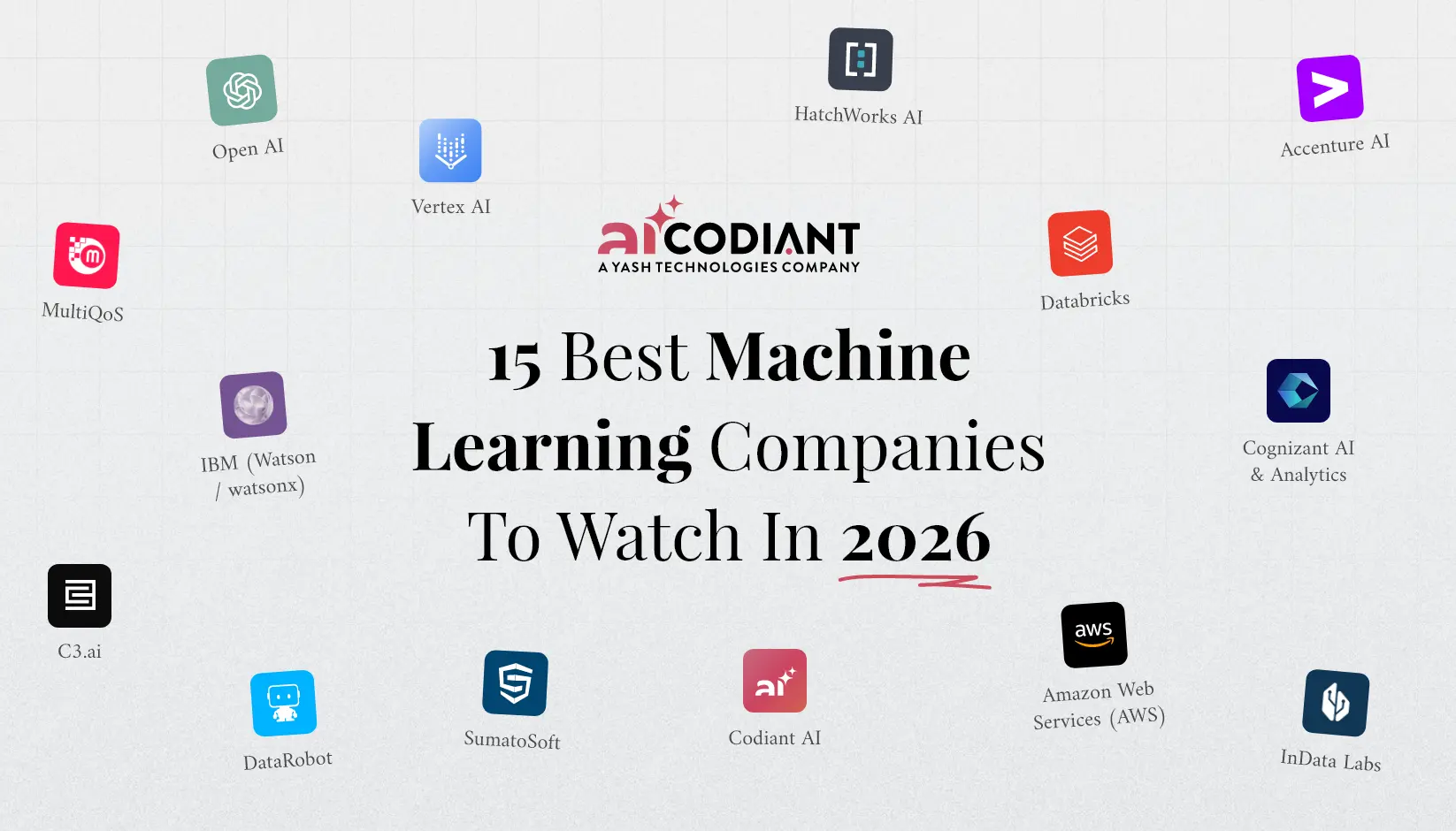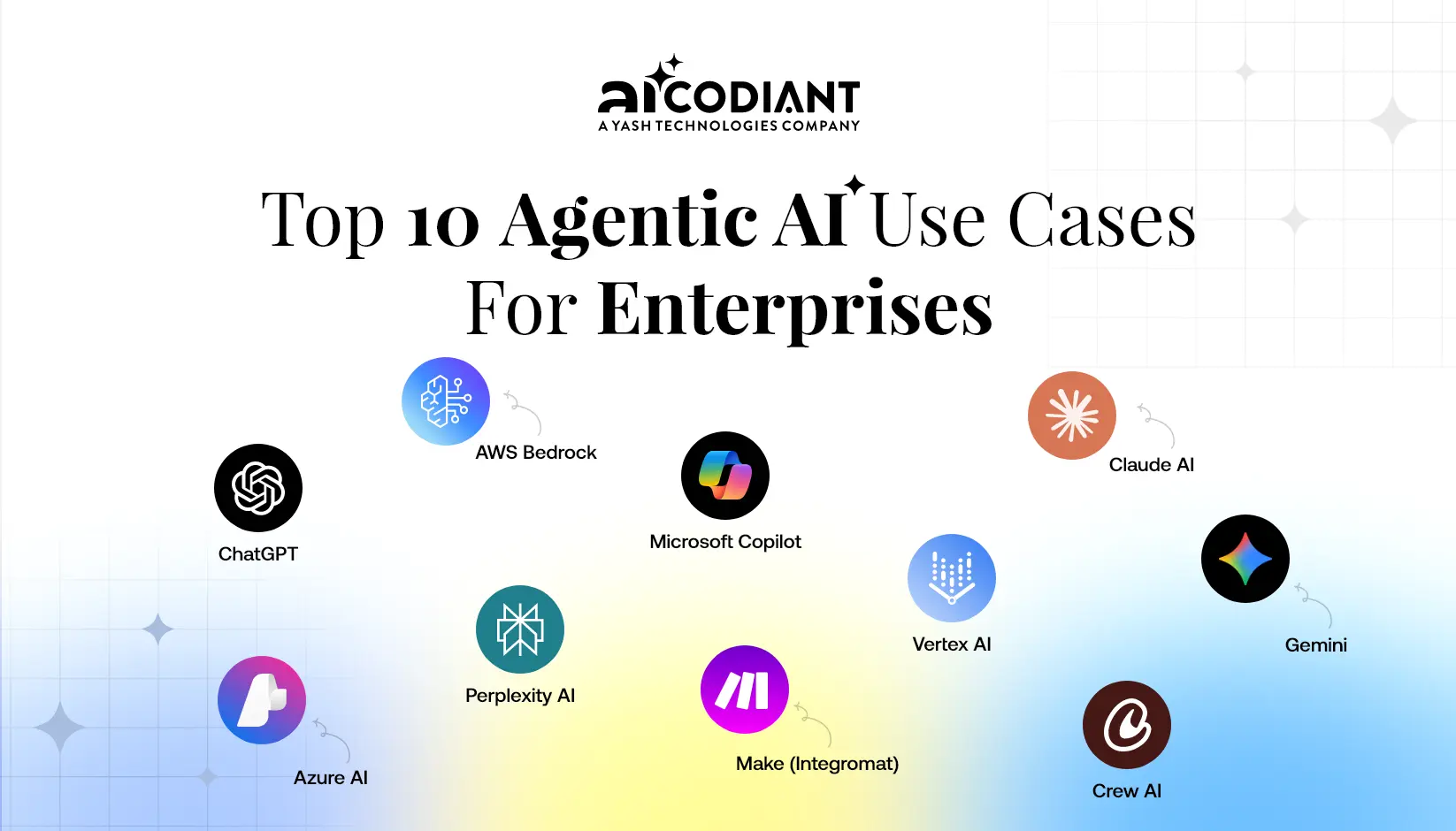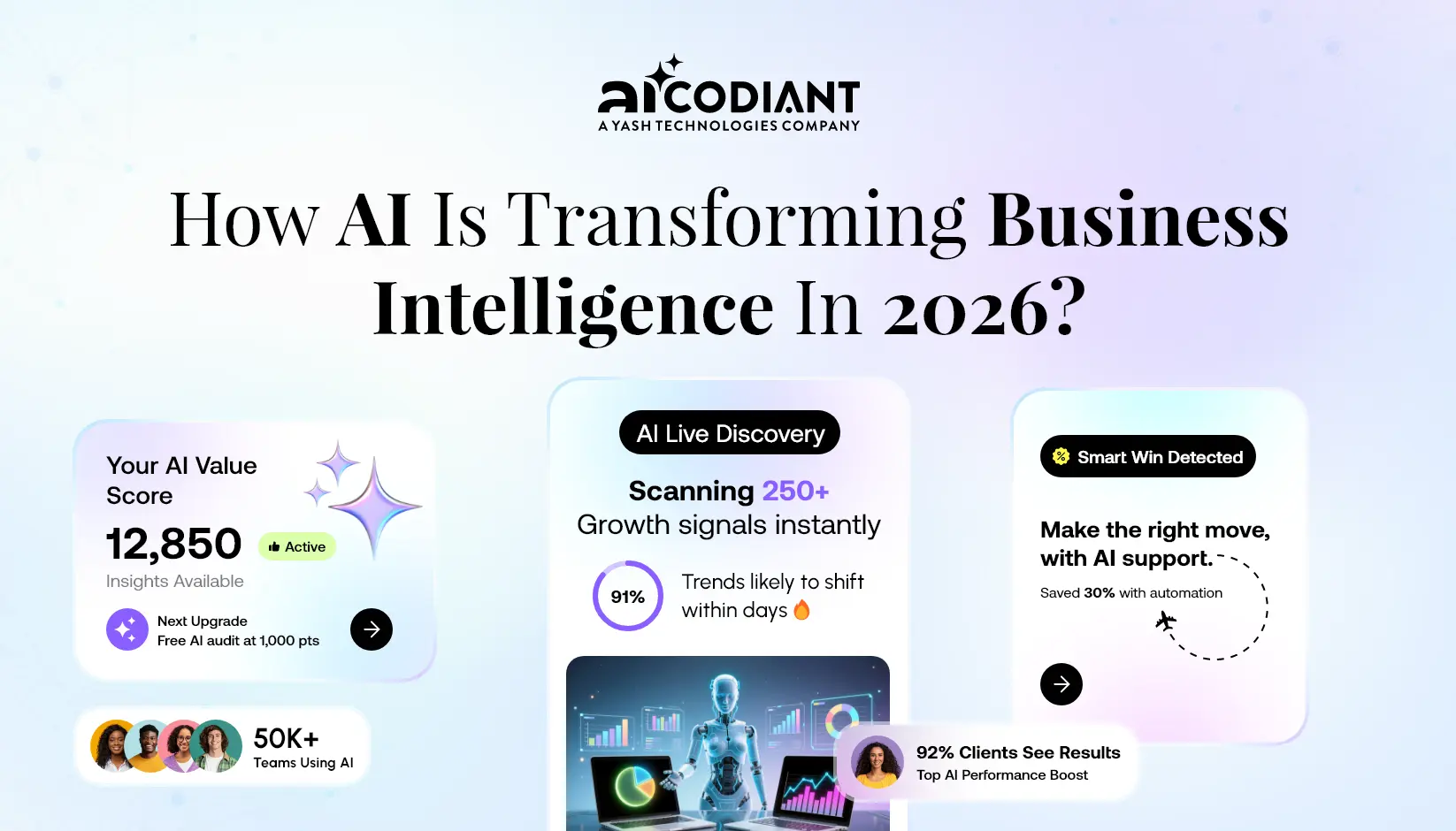AI-Powered Skin Diagnosis: The Hidden Power Behind Beauty E-Commerce
Table of Contents
Subscribe To Our Newsletter
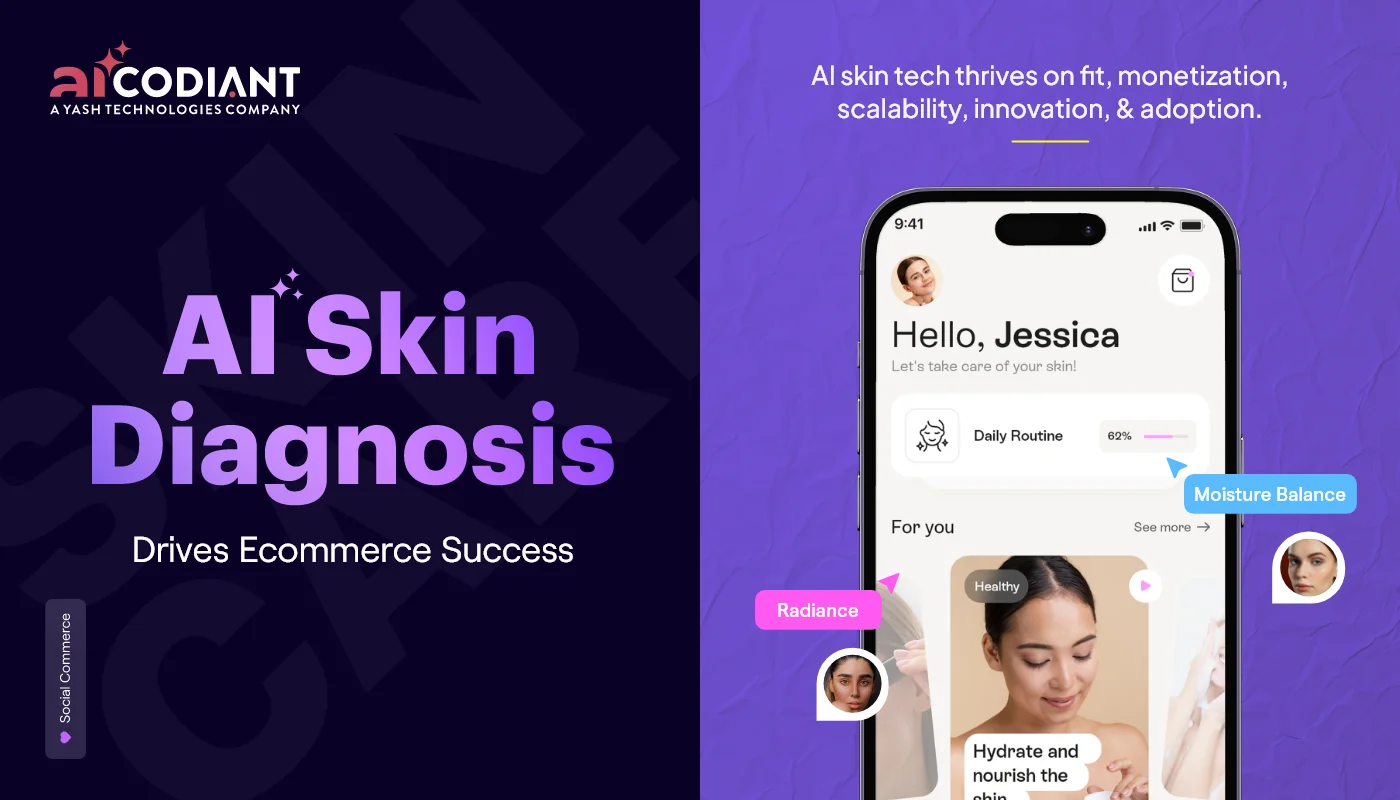
Shopping for skincare online has become a normal part of modern life. Customers today order moisturizers, serums & cleansers with just a few clicks. So far the digital shopping journey in beauty is still full of uncertainty. Unlike walking into a store, customers cannot test a product, feel its texture or speak directly to a consultant. Many ask themselves the same questions: Will this product suit my skin type? Is it safe for my condition? What if it causes irritation?
This lack of clarity often leads to hesitation abandoned carts & returns. Online stores may succeed in attracting customers, but they still struggle to provide personalized care. That gap is now being filled by AI-powered skin analysis. By simply uploading a photo or scanning the face through an app the shoppers can receive instant insights about their skin & personalized product recommendations. For e-commerce beauty stores this means higher customer confidence, stronger engagement & fewer mismatched purchases.
In this article, we will explore what an AI skin diagnosis app is, how it works, the benefits of AI skin diagnosis for online beauty stores & the growing use cases of AI in skincare and e-commerce. Most importantly, we will look at why personalization powered by artificial intelligence is becoming the new standard in the beauty industry.
Decoding AI in Skincare
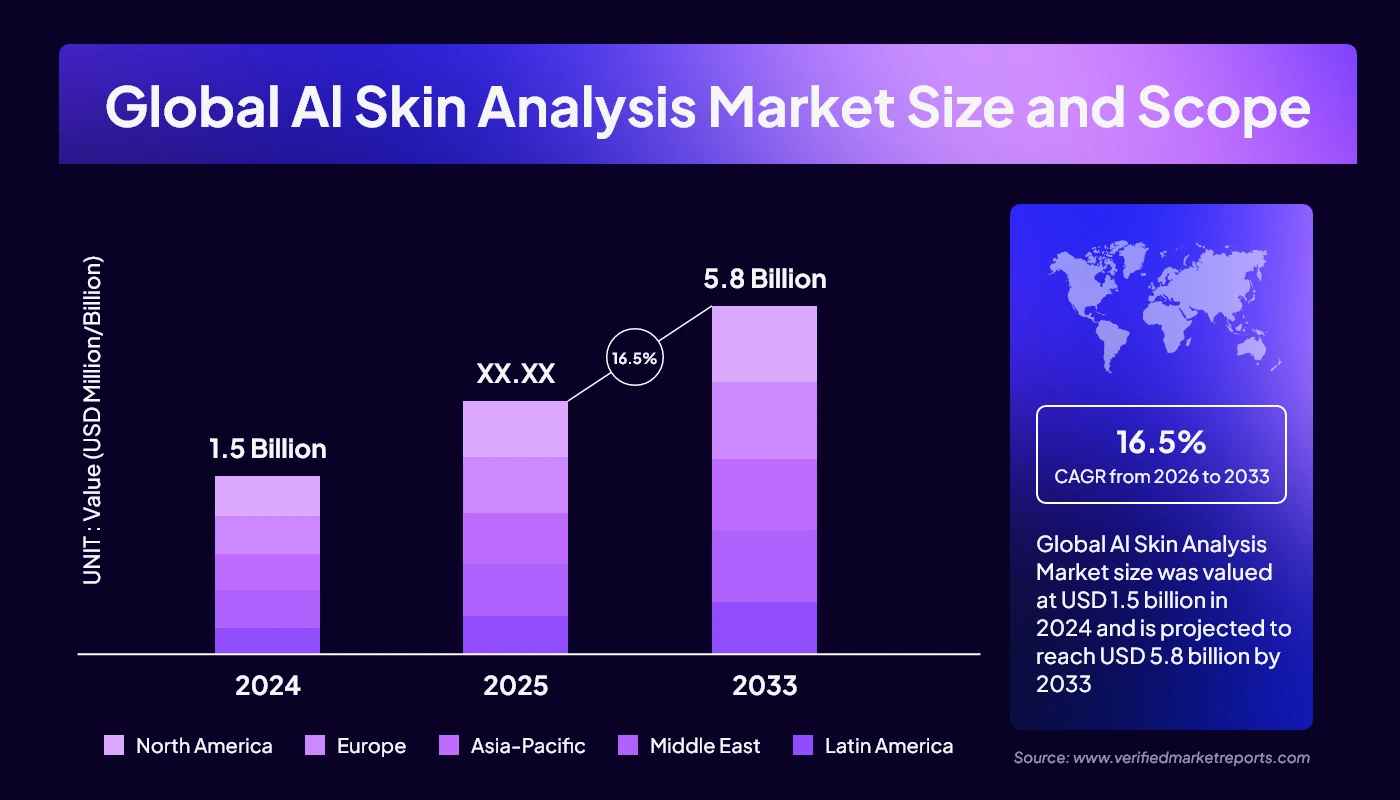
When we talk about AI skin diagnosis for e-commerce, we are referring to the use of artificial intelligence to study the condition of a person’s skin through digital images.
The idea is simple: with the help of algorithms trained on thousands of skin images, a system can analyze concerns such as dryness, oiliness, fine lines, wrinkles, pigmentation, acne & more. Instead of guessing which product might help, a customer receives precise suggestions tailored to their skin needs.
For customers, this feels like carrying a personal skincare consultant in their pocket. For businesses, it is a way to bring expert-like advice directly into the digital shopping journey.
The shift is important because online skincare has traditionally lacked the one thing that drives most beauty purchases -trust. An AI skin analysis tool bridges that gap by offering results backed by data, not guesswork.
This development is part of a wider movement of AI in e-commerce skincare, where technology is not just supporting sales but guiding entire customer experiences.
The industry is slowly moving away from generic product pages to a model where every shopper feels recognized and understood.
How Does AI Skin Analysis Work?
At first glance, an AI skin diagnosis app looks very simple to use. Customers either download a mobile application or visit a website where the feature is available.
They take a clear selfie or a short video of their face. Behind the scenes, however several steps take place in a matter of seconds.
First the system captures the image and uses computer vision to study different areas of the face. It identifies features such as pores, wrinkles redness & uneven tone.
Second, it compares this information against large dermatology datasets. By doing this the AI skin analysis tool can point out concerns like “mild dryness on the cheeks” or “early signs of pigmentation around the forehead.”
Finally, the system matches these findings with the product database of the store to suggest cleansers serums or creams that are most likely to help.
The result for the customer is a short but clear report: a summary of their skin condition and a list of recommended products. This process takes less than a minute but it removes the uncertainty of shopping online.
For the store, it creates a guided sales journey where customers are less likely to abandon the cart and more likely to make confident purchases.
Face Mapping and Virtual Skin Advisors
One of the most interesting aspects of AI-powered skin analysis for personalized shopping is face mapping. The human face is not uniform. For many people, the nose may be oily while the cheeks are dry.
Some may have dark circles under the eyes but clear skin elsewhere. Face mapping technology divides the face into different zones such as forehead, cheeks, nose & chin. Each zone is analyzed separately, which creates a detailed picture of skin health.
This detailed mapping is what makes the technology feel personal. Instead of offering a one-size-fits-all suggestion, it allows the system to recommend targeted solutions.
For example, a customer may receive advice to use an oil-control cleanser for the T-zone but a hydrating cream for the cheeks. This level of accuracy builds trust and sets a brand apart in the crowded online skincare market.
Many companies are also offering AI skin scanner apps that act as virtual skin advisors. These apps not only give instant feedback but also allow users to track progress over time. A customer can scan their face every week and see how acne has reduced or how skin texture has improved. This ongoing relationship keeps users engaged with the brand long after the first purchase.
Core Innovations Powering AI Skincare
The rise of AI in e-commerce skincare has been possible because of several important innovations. The first is image recognition, which allows software to study skin conditions from simple selfies.
The second is face mapping, which gives a more detailed understanding of different zones of the face. The third is recommendation engines, which connect the analysis with a store’s product database.
Finally, there is progress tracking, which helps customers monitor their improvements and continue their journey with the brand.
Together, these innovations, supported by strategic AI consulting, transform how skincare products are discovered and purchased online. Instead of relying on marketing claims, customers receive advice rooted in analysis. Instead of choosing from hundreds of options, they receive a clear path tailored to their personal needs.
This is not just about selling more products. It is about reshaping how people experience skincare digitally. Customers feel understood, stores see higher engagement & the overall shopping journey becomes smoother.
Benefits of AI Skin Diagnosis for Online Beauty Stores
- Customized Shopping: – Customers get product recommendations based on their specific skin condition instead of general listings which enhances their confidence and satisfaction.
- Increased Sales Conversions: – If the shopping recommendations are trusted by shoppers, they are less likely to change their mind & later on they complete the purchases thus reducing abandoned carts & generating revenue.
- Reduced Returns of Products: – When product matching is accurate it gives lesser scope for dissatisfaction such as customer disappointment annoyance or a refund application.
- Actionable Customer Insights: – Skin scan data highlights common issues (dryness or acne) which brands can use to devise better products & refine marketing strategies.
- Increased Customer Loyalty: – Transforming first-time buyers into long-term loyal customers by increasing the likelihood that shoppers will return if they feel guided & cared properly.
Use Cases of AI in Skincare and E-Commerce
1. Virtual Skin Tests
One of the most common applications is virtual skin testing. Customers can scan their face and instantly receive a basic report of their skin health. This helps them make informed decisions instead of guessing.
Example: L’Oréal’s Skin Genius app allows users to upload a selfie, analyze their skin & receive product recommendations tailored to their needs.
2. Personalized Skincare Routines
AI can go beyond recommending a single product. Many tools now create full skincare routines, suggesting cleansers, serums, moisturizers & sunscreens that work together.
Example: Clinique Clinical Reality offers customers complete personalized regimens by combining AI skin scans with dermatologist-inspired routines.
3. Progress Tracking Over Time
Customers can track their improvements by scanning their face weekly or monthly. Seeing visible results motivates them to stay consistent, while also creating repeat sales for brands.
Example: Neutrogena Skin360 provides users with regular progress updates, helping them see how their skin changes with continued product use.
4. Loyalty Programs Powered by AI
Some beauty brands are integrating AI skin scans into loyalty programs. Customers who complete regular scans or follow personalized recommendations are rewarded with discounts, points, or exclusive offers.
Example: Perfect Corp’s AI Skin Tech has been integrated into several beauty retailers’ apps to encourage repeat engagement through gamified rewards.
5. Product Development Insights
On the business side, AI skin analysis tools collect valuable data on common skin concerns across large groups of customers. This helps brands design new product lines, refine existing formulations & identify emerging needs in different markets.
Example: Olay’s Skin Advisor not only recommends products but also provides Procter & Gamble with insights into global skincare trends, guiding product innovation.
Challenges and Trust Factors
While the promise of AI skin diagnosis apps is exciting, challenges remain. Accuracy is the most critical factor. If a tool provides incorrect analysis, it can damage customer trust. That is why companies must constantly improve their datasets and algorithms.
Diversity is another concern. AI must work equally well across all skin tones, ages & conditions. Without this inclusivity, many customers may feel excluded or receive poor results. Privacy is also a major factor. Since customers share personal photos, brands must ensure strong data protection and transparency in how information is used.
Finally, there is the challenge of customer education. Many people are new to AI skin analysis tools and may not understand how to use them properly. Brands need to provide clear instructions and assure customers that the technology is designed to help, not replace dermatologists.
Addressing these trust factors is essential. Without them, adoption will remain limited. With them, the potential for growth is huge.
The Future of AI in Skincare
Looking ahead, the future of AI in e-commerce skincare appears very promising. One emerging area is predictive skincare. Instead of only detecting current problems, AI may soon predict future concerns and suggest preventive solutions. This could help customers maintain healthy skin before issues appear.
Another trend is the integration of augmented reality (AR) with AI. Imagine scanning your face live and seeing product recommendations appear instantly, along with virtual try-ons. Subscription models are also expected to grow, where customers receive monthly skincare boxes tailored to their updated AI scans.
There is also potential in tele-dermatology. While AI will never fully replace doctors, it can work alongside them. By providing basic analysis, AI solutions can free up dermatologists to focus on more complex cases and help them give faster, data-supported advice online.
Overall, the future will move beyond selling products. It will focus on curating complete skincare journeys -personalized, data-driven & convenient.
Why Businesses Should Invest in AI Skin Diagnosis
For beauty brands, adopting AI-powered skin analysis for personalized shopping is no longer just an innovation -it is becoming a necessity. Customers today expect more than discounts and product catalogs. They want personal guidance, even when shopping online.
Investing in AI provides clear advantages. It helps attract new customers by offering something unique. It increases conversion rates by reducing hesitation. It drops the costs by cutting down on product returns. And also, it improves the image of your brand as a forward-thinking and customer-focused brand.
In a competitive market, the question for beauty brands is not if they should adopt AI skin diagnosis, but when. Those who move early will gain a strong position and long-term advantage.
How an AI Development Company Can Help
Not every beauty brand has the expertise to create an AI skin diagnosis app on its own. Building and maintaining such technology requires knowledge of artificial intelligence, mobile app development, data privacy & user experience design. This is where partnering with an AI development company can make a big difference.
A professional AI development company like Codiant.AI can design a customized AI skin analysis tool that fits flawlessly into the existing website or mobile application of your store. They can also guarantee that the data is handled securely and that the tool is comprehensive for different skin tones & conditions. Apart from development, these companies will also provide ongoing updates to keep the system accurate & dependable.
By collaborating with experts in AI domain, your beauty brands can focus on its core business and parallelly offering cutting-edge digital experiences to their customers.
Conclusion: From Products to Personalized Journeys
There is a positive shift happening in the beauty industry. Something that used to depend on in-store consultants and testing samples is finding its way online. What has changed is that customers no longer need to have to guess or take a gamble. Thanks to AI-powered skin diagnosis for e-commerce, they can navigate their shopping experience with transparency and assurance.
This translates into shopping that is familiar, trustworthy & curated for customers. For online beauty retailers, this translates to more sales, less returns & increased brand loyalty. There are high benefits of AI skin diagnosis for online beauty stores that cannot be ignored.
With the rapid development in technology AI will become more than just an assisting tool. It will be the new paradigm for discovery, recommendations & purchases around skincare products. And the brands that navigate this change are not only going to sell products but are going to build lasting relationships with consumers, guiding them through their unique skin journeys.
Read more: AI-Powered Telemedicine: Must-Know Apps and Cost Breakdown
Featured Blogs
Read our thoughts and insights on the latest tech and business trends
Top 15 Machine Learning Development Companies in 2026
- February 26, 2026
- Machine Learning
Machine learning is no longer something only big tech companies use. In 2026, businesses of every size are using machine learning to predict demand, reduce costs, detect risks & make better decisions faster. But here’s... Read more
10 Agentic AI Use Cases Powering Enterprise ROI in 2026
- February 20, 2026
- AI Agent Development
In a Nutshell: Agentic AI goes beyond traditional automation by making goal-driven decisions across complex enterprise workflows. In 2026, enterprises are adopting agentic AI for measurable ROI, not experimentation or pilots. Agentic AI use cases... Read more
AI in Business Intelligence- The 2026 Roadmap to Data Dominance
- February 16, 2026
- AI-Powered Data Analytics
Business intelligence was built to bring clarity to complex businesses. Dashboards, reports, KPIs and scorecards were meant to help leaders see what was happening and make informed choices. In practice, most BI systems still focus... Read more
